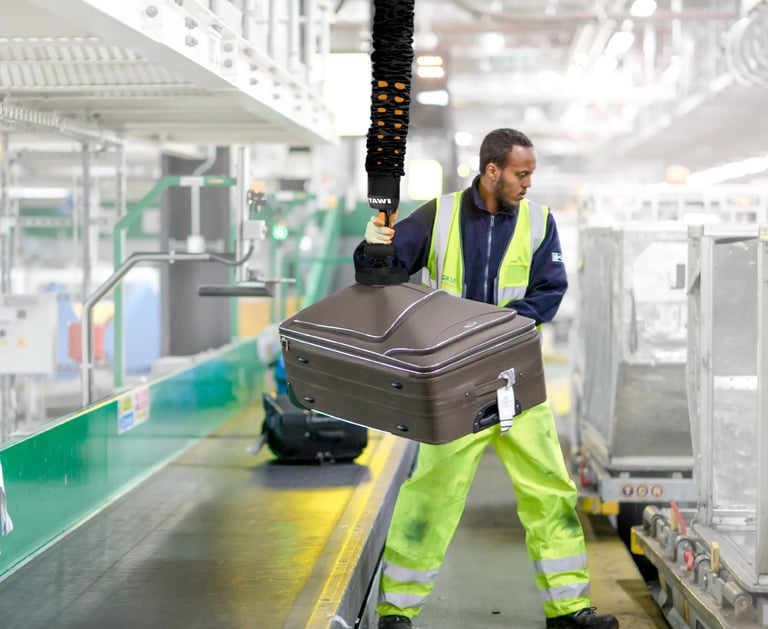The challenge of (safe) airport baggage handling

Manual handling of baggage and cargo in airports present a great risk of injury to ground handlers. The back and shoulders are the areas of the body most exposed to injury in airport baggage handling.
Risks when manually handling baggage
These four points pose the main risk for physical injury when manually handling baggage and cargo in airports:
- The load (weight, size, shape, stability, and grip)
- The task (postures adopted when lifting, repetition, duration, and carrying distance)
- The environment (the space available to move, floor condition, and change in levels)
- The individual (capability and characteristics of the operator, level of knowledge and experience, and underlying health conditions)
Several of the above factors acting in combination make the risk greater. E.g., a repetitive lifting task undertaken in a bad position can represent a high risk.
“Before TAWI we had a lot of problem with injuries due to the heavy lifting here at Heathrow. Thanks to the TAWI solutions the work is much more efficient, and my staff doesn’t suffer from back problems anymore.”
Martin Bell, Training Officer, Menzies, Heathrow airport.
How to prevent injury when handling baggage
The use of lifting aids when handling baggage or air cargo greatly reduces the risk of injury by reducing the load on the body. TAWI provides ergonomic solutions preventing the risk of injury associated with manually handling baggage. The use of TAWI baggage lifters results in an improved work environment and reduced number of injuries, but also increased productivity.
“Since we installed the TAWI equipment we have reduced our sick leave by 50%,” Matthew Pyne, Station Attendant, Air Canada, Halifax.
Uplifting baggage solutions
TAWI provides the airport industry with flexible, top-quality equipment, designed, and manufactured in Sweden. We actually have over 650 baggage lifting units installed in more than 65 airports across the world. And thousands of satisfied users who work with the equipment every day. When asked about the benefits of using TAWI equipment, our airport customers tend to highlight increased productivity, an improved work environment, and reduced number of injuries.
“The lifters are very easy to learn, and the operation is very quick and flexible. What impressed me the most was the fact that all personnel spontaneously started to use them, even before we had any training and introduction,” Karl-Åke Libell, Warehouse Manager, Spirit Air Cargo, Stockholm.
Did you know that your average airport baggage handler lifts at least 6 tons of baggage per shift? (That is like lifting one big African elephant every day!) TAWI enables airports to spare their personnel from this strenuous and risk-filled task, allowing them to handle baggage in a more sustainable way. Read more about TAWI baggage handling solutions.
“Baggage is such an important thing for the passenger. And with the TAWI solutions we really can improve what we do. For me, the most important is that my staff comes home fit and safe.”
Darren Constant, Head of airside operations, Menzies, Heathrow airport